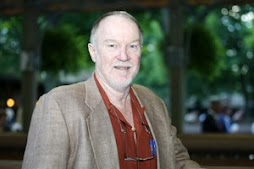In the contemporary world, though, travel can also be sickening. It would be unfair to blame American Airlines and the whole US air travel system for the horrible head and chest cold I developed a few days after a Boschean trip back from my rather wonderful visit to Uruguay, but what the hell? It surely wasn't my fault that what should have been a 14-hour trip turned into a 36 hour ordeal.
Nine hours in the air from Montevideo trapped in the middle seat of a row is bad enough, but when the plane could not land in Miami because of fog and was diverted to Orlando, it turned a bearable experience into a visit to one of the inner rings of Dante's Inferno. U.S. customs will not allow even U.S. citizens to enter a different port than the one designated, so we had to sit on the tarmac in Orlando for 3 hours (breaking all kinds of FAA rules, of course), return to Miami once that airport opened, and then face the sheer, chaotic hell of trying to re-book flights at the same time half a dozen other similarly delayed flights were doing the same. When I noticed while standing in line that American had exactly one person working on re-booking a line that already numbered more than 100 and would grow to at least 500 or so, I decided it was time to punt. I took a room in a hotel, booked a flight for the next morning from there, and called it a day.
Some of my impressions of Uruguay and the broader insights from my trip are included in the link at right titled Uruguay postcards, which will take you to a PDF compilation of my daily reports from Montevideo and other sites, if you did not already see those ruminations when originally published in Thoroughbred Times Today. (I've also added links to my recent Bloodstock Topics articles in the Thoroughbred Times print edition on the production records of Great racemares and Hall of Fame male racehorses, if you didn't see those.)
The wonderful folks in Uruguay invited me down because they were interested in a) the publicity I could offer their racing and breeding program, and b) my observations on what they might be able to do better. As you'll see in the postcards, I was more than happy to do both.
Uruguay is a small, vibrant, mostly rural country with a very different problem set than our own. Even in Montevideo, a sprawling city of 1.3-million people, the people still feel a connection to the land that our city dwellers lost long ago. They know where their meat and vegetables come from, unlike some of our city school children who think they come from Kroger or Wal-Mart.
The Gaucho heritage is still much more alive than America's frontier cowboy myth, which has mostly disappeared from the public consciousness. Outside Montevideo, the country feels vast and empty, with herds of cattle grazing over endless, rolling fields. Uruguayans still know what a horse is and what it means to their lives. Americans, as a rule, do not.
What Uruguay does not have as a racing country is a large number of very wealthy individuals who are interested in horse racing and willing to invest the large sums necessary to make the country a real player on the world stage. With a population of only about 3.5-million, 1% of that of the United States, there simply is no critical mass of investment to make the breeding industry take off. Barring Uruguay's version of Sheikh Mohammed injecting serious capital, it is hard to see much change in the near future.
Uruguay does have a world-class racecourse in Hipodromo Nacional de Maronas. The physical plant's lovely 19th century style has been beautifully, stylishly updated by Hipica Rioplatense and the racecourse itself is beautifully laid out, with a demanding home straightaway of almost three furlongs. It is a long way from that final turn to the finish line, a distance that requires both courage and stamina to win a race.
Despite the arduous and stressful trip home, I would do it all again. The people are warm and engaging, working hard to make their world as a whole better. Sadly, that is not always the feeling one gets from within the American racing industry where turf wars remain all too common.
Travel is broadening.


No comments:
Post a Comment